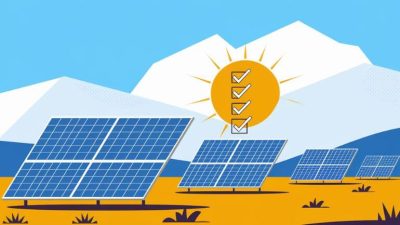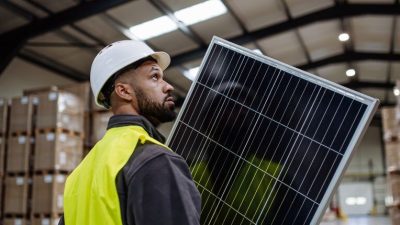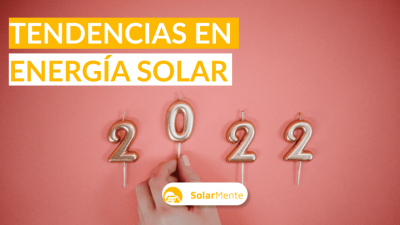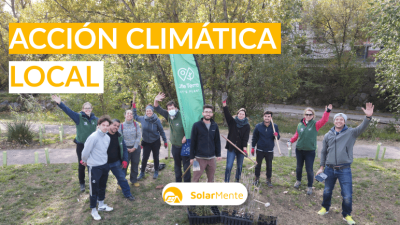The energy crisis in Spain and the rest of Europe is wreaking havoc: war and inflation are the terms most commonly heard today.
The fact is that we are entering a difficult period where the restrictions on Russian gas caused by its invasion of Ukraine have caused the price of electricity to skyrocket, reaching exorbitant figures that affect homes and businesses.
To alleviate this situation, Spain has taken exceptional measures to help reduce the negative impact, but it is not taking into account accelerating energy policies that involve a shift towards renewable energies.
Therefore, in this article we will take a look:
- Current situation in Europe.
- Process of evolution of inflation in the price of electricity and gas.
- Measures implemented by the European Commission and Spain.
- Solar energy as an alternative energysource.
What is happening in Europe? We analyse the current situation
The energy crisis currently being experienced in Europe is on the way to causing a gas shortage.
Since the start of Russia’s war against Ukraine, the European Union has severely sanctioned the Russian country. What are the consequences? A 20% reduction in Nord Stream flows.
This reduction of the pipeline, which supplies Germany to a large extent, is causing fear among neighbouring European countries.
Of course, the impact on these territories is not the same and varies from one geographical area to another, but the dependence is still significant and the reduction in supplies makes it difficult to meet the objective of storing reserves for the winter season.
Due to this cut, the price of gas in the Title Transfer Facility (TTF), known as the commercial benchmark for Europe, has experienced a notable rise that does not seem to be consolidating as a temporary mismatch, but could continue to increase and create significant consequences for the economy.
Skyrocketing inflation: drastic rise in electricity and gas prices
Energy prices have soared to unprecedented levels, causing inflation in the eurozone not seen since the 1980s.
But the most shocking thing is that this inflation has been felt, above all, in the energy sector with a rise of 32.8% last August, according to Eurostat.
But there is more. Looking back, we were already suffering price rises last year before the start of the war between Russia and Spain, with prices reaching 266 €/kWh due to the closure of Nord Stream 2.
We already had an energy problem, but the war has accelerated it significantly.
Translation of all this: energy prices will continue to rise, while households will see a significant reduction in their purchasing power.
What’s more, if we look at the data, the increase is abysmal.
Let’s go back to September 2021. The price of energy stood at €17.36/mWh, while in the same month this year the price reached €159/kWh.
This means that the increase has been 800% from one year to the next.
What is happening in the case of Spain? First of all, the purchase of Russian gas doubled in August by 102.19% compared to the same month last year, while imports with Algeria fell by 34.8%.
Spain broke the agreements with Algeria and the United States became the new supplier, causing the price of gas and energy to rise by 30%.
You will see this increase reflected in the electricity bill with a concept called the gas price cap.

What is in store for this winter and the coming months?
The European Union is preparing to have energy storage at maximum levels in the event that Russia takes the decision to shut off gas supplies.
Indeed, Putin has been blunt in his response, cutting off supplies to several countries that refuse to pay for gas in roubles.
On the other hand, Germany is building four floating terminals to import alternative gas to that provided by Russia.
Of these four floating terminals, Germany expects two to be operational before the end of the year. At the same time, agreements were signed with countries such as the United States, Qatar and Canada.
Measures taken by the European Commission
To cope with the energy crisis in 2022, the leaders of European countries are considering new measures resulting from the gas supply cut-off.
The European Commission has asked member states to voluntarily reduce gas demand by 15% in winter, with the possibility of mandatory reductions in certain cases.
However, let us look at some of the measures taken by European countries:
- Italy. The government took the measure to reduce heating in buildings, industrial, craft and similar activities. Also a lowering of VAT on gas, while increasing the tax on electricity profits to 25%.
- France. It has limited the increase in the cost of regulated electricity to 4%. On the other hand, it intends to increase electricity and gas exchanges with both Germany and Spain.
- United Kingdom. The Prime Minister intends to freeze household bills this winter and next.
- Portugal. Our neighbouring country has decided to inject aid for households accompanied by a cut in energy tax.
- Germany. Workers will receive a 300 euro bonus to help them cope with the new electricity bill. Families will also receive an allowance of 100 euros per child, which will be increased if income is low. In addition, subsidies are proposed for public transport passes, pensioners and students.
What are the temporary initiatives proposed by Spain?
Inflation has had an impact on all eurozone countries, but Spain is the second most affected by this drastic rise, ahead only of the Netherlands.
Last August, inflation reached double digits at 10.5%.
To cope with this unprecedented rise, the government has taken a number of measures to help reduce the impact of the energy crisis.
We start with the reduction of VAT to 5% on gas and electricity. This new measure will now come into effect in October and will remain in place until 31 December unless otherwise stated.
What other measures have been taken in the short term? Discounts on the price of petrol, reductions in public transport being free in certain cases, and the bono social eléctrico to help families with fewer resources.
In terms of establishments and public or business buildings, a new regulation was established where the air conditioning temperaturecould not exceed 27 degrees in summer. On the other hand, the arrival of winter means limiting the temperature to 19 degrees.
In addition, shop windows may not be illuminated after 22:00 and must be switched off when not in use.
From a sustainable point of view, measures will be adopted to improve energy efficiency and savings, as well as to increase production capacity with renewable energy sources.
Solar energy: the solution to the energy crisis
Despite all the solutions proposed for this energy crisis, we see the need to focus on other natural resources and enhance energy policies to accelerate the shift to renewable and clean sources.
We must prioritise the most vulnerable people who do not have access to a basic commodity such as electricity, making decisions that promote solar energy and energy efficiency.
This situation is making it clear that the energy system we have is not sustainable over time and it is necessary to accelerate this energy transition.
Short-term measures will not take us anywhere, taking us back to square one. They must be considered in an exceptional way and look towards the sources of the future that supply us with clean energy to face uncontrollable situations such as the one we are experiencing now.
From SolarMente, we have a self-consumption calculator to check first hand the savings you can get with a photovoltaic installation. Try it and tell us your results!
















